Journal Boards
Editor-in-Chief

Assoc. Prof. Dr. Ayşe TOMAT YILMAZ was born in 1988 in Aydın, Turkey. She completed her primary and secondary education in this city. In 2010, she graduated second in her class from the Department of French Language and Literature at Istanbul University, Faculty of Letters. In the same year, she began working as a Research Assistant in the Department of French Language and Literature at Çankırı Karatekin University, Faculty of Letters. Between 2011 and 2012, she worked as a Research Assistant in the Department of French Language and Literature at Atatürk University, Faculty of Letters, where she also completed her master’s degree. From 2012 to 2017, she served as a Research Assistant in the Department of French Language and Literature at Ankara University, Faculty of Languages, History and Geography, where she obtained her PhD.
Between 2019 and 2021, she taught undergraduate and graduate courses as a Lecturer (Doctor) at École Normale Supérieure, Lyon 2 University, and Jean Monnet University under the Turkish Republic Lyon Educational Attaché Office. From 2020 to 2023, she served as the Education Attaché at the Consulate General of the Republic of Türkiye in Lyon. Since 2024, she has been continuing her academic career as a faculty member in the Department of French Language and Literature, Division of Western Languages and Literatures at Ankara Hacı Bayram Veli University.
During her undergraduate studies, she attended Paris Descartes University through the Erasmus Program, and during her doctoral studies, she conducted research on her dissertation at Paris X Nanterre University through the Erasmus Internship Mobility program. Between 2019 and 2021, she completed her postdoctoral research at École Normale Supérieure.
Her academic interests and research areas include French literature, North Africa, imagology, the image of the Turk, migration and migration sociology, colonialism, women’s issues, and Turkish language education in France.
Fluent in French and English, Tomat Yılmaz is married.
Editorial Assistants


Ayşegül Demir is a Turkish academic in the Department of English Literature at Munzur University in Turkiye. She did her PhD on Scottish Makar Kathleen Jamie and has recently studied the minstrelsy tradition in Scotland and the translation of Scottish ballads into Turkish at the University of Edinburgh as a postdoctoral visitor. She is the recipient of the 2018 Saltire Scholarship and the 2022 Edwin Morgan Translation Fellowship for the Scottish Literature Module at Scottish Universities International Summer School (SUISS). She is a co-founder of Modernism & Postmodernism Studies Network in Türkiye and a rotating editor of JOMOPS. She has published widely on Scottish literature with a specific focus on minstrelsy tradition, border ballads, makars, and Turkish–Scottish Oral Literature. “Scotland Hymns for His Identity: The National Anthem in Progress'' is the title of her most recent publication in Routledge's Global Perspectives on Nationalism: Political and Literary Discourses Series (2022)
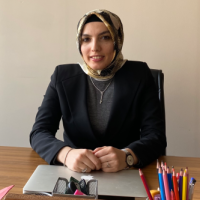
Language Manuscripts Editor (English)

Ayşegül Demir is a Turkish academic in the Department of English Literature at Munzur University in Turkiye. She did her PhD on Scottish Makar Kathleen Jamie and has recently studied the minstrelsy tradition in Scotland and the translation of Scottish ballads into Turkish at the University of Edinburgh as a postdoctoral visitor. She is the recipient of the 2018 Saltire Scholarship and the 2022 Edwin Morgan Translation Fellowship for the Scottish Literature Module at Scottish Universities International Summer School (SUISS). She is a co-founder of Modernism & Postmodernism Studies Network in Türkiye and a rotating editor of JOMOPS. She has published widely on Scottish literature with a specific focus on minstrelsy tradition, border ballads, makars, and Turkish–Scottish Oral Literature. “Scotland Hymns for His Identity: The National Anthem in Progress'' is the title of her most recent publication in Routledge's Global Perspectives on Nationalism: Political and Literary Discourses Series (2022)
Lecturer Şule Çınar Yağcı completed the French Teaching undergraduate program at Istanbul University in 2014. She earned her master’s degree with a thesis in the Department of French Education at the Istanbul University Institute of Educational Sciences in 2018 and is currently pursuing her doctoral studies at the Gazi University Institute of Educational Sciences.
Since 2021, she has been serving as a lecturer at Zonguldak Bülent Ecevit University's School of Foreign Languages. Adopting innovative approaches in teaching French, Şule Çınar Yağcı focuses her studies on AI-supported language teaching, digital storytelling design, and the integration of educational technologies into foreign language education.
Her academic publications include book chapters and articles on AI-supported French education, digital storytelling design, and the flipped classroom model. She has presented papers on the use of artificial intelligence in foreign language teaching at international conferences and symposiums.
During the fall and spring semesters, Şule Çınar Yağcı teaches French courses at the Faculty of Tourism. She also contributes to the preparation of IAESTE exam materials and serves in the French sections of these exams.
Field Editor (Language and Literature Editor)

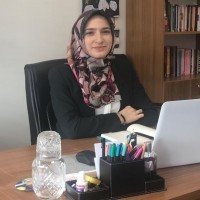
My research focuses on translation and cultural studies. I am interested in the theory of comics, literature, terminology, semiotics, ecology, and new media studies.
Field Editor (Asian-African Studies)
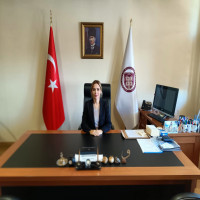
Field Editor (History)

 Web
Web
Field/Area Editor (Sociology)

Layout Editor
Editorial Board

Prof. Dr. Fatma Ahsen TURAN
A.Ü. Dil Tarih ve Coğrafya Fakültesi Türk Dili ve Edebiyatı bölümünden 1984 yılında mezun oldu. G. Ü. Sosyal Bilimler Enstitüsü’nde 1989 yılında yüksek lisansını, 1995 yılında doktorasını tamamladı. 1985-1991 yılları arasında Ankara Üniversitesinde okutman kadrosunda Türk Dili dersi verdi. 1991 yılından 2018 yılına kadar Gazi Üniversitesi Fen-Edebiyat Fakültesi TDE Bölümü, Halk Edebiyatı anabilim dalında görev yaptı. 1999 yılında (Haziran-Eylül) Manchester Üniversitesinde (UMIST), 2004’te (Ocak-Mayıs) Michigan State Üniversitesinde dil eğitimi aldı ve araştırmalar yaptı. 2007 yılında DAAD Alman Hükümeti burs ödülü ile Freie Üniversitesi Türkoloji enstitüsünde proje çalışmasını yürüttü. 2008’de Hindistan’da Jamia Millia Islamia Üniversitesi’nde Türk Dili Kürsüsünü kurarak 2008-2009 yıllarında Türkçe dersleri verdi. 2012 yılında Halk Kültürü Araştırma Kurumu tarafından verilen Türk Halk Kültürüne hizmet ödülünü aldı. Hâlen Ankara Hacı Bayram Veli Üniversitesinde Prof. Dr. Öğretim üyesi olarak görev yapmaktadır. Alanıyla ilgili çok sayıda kitap ve makalesi bulunmaktadır. Türk Radyo ve Televizyon Kurumu’na Türk kültürü hakkında radyo programları yazdı. Bu programlar; İspanyolca, Almanca, Romence, Fransızca, Arapça, Peştuca, Malayca gibi dillere çevrildi.


Doç. Dr. Erkan Karagöz, Muğla’da doğdu (1982). İlk, orta ve lise eğitimini Muğla’da tamamladı. Gazi Üniversitesi Edebiyat Fakültesi Çağdaş Türk Lehçeleri ve Edebiyatları/Türkoloji bölümünden mezun olduktan sonra (2005 Haziran) aynı bölümde araştırma görevlisi kadrosunda çalışmaya başladı (2005 Aralık). Fakültedeki işiyle eş zamanlı olarak aynı üniversite çatısı altında faaliyet gösteren Gazi TÖMER’de (Türkçe Öğretim Merkezi) görevlendirme ile yabancı öğrencilere Türkçe öğretti (2008-2010). Gazi Üniversitesi Sosyal Bilimler Enstitüsü Çağdaş Türk Lehçeleri/Türkoloji Anabilim Dalında Türk Destanlarında Su Altı Dünyası isimli teziyle yüksek lisansını (2009), Tatar-Başkurt Sihirli Masalları Üzerine Karşılaştırmalı Motif Çalışması: Çeviri – Motif Tespiti (Motif-Index of Folk-Literature’a Göre) – Motif Dizini isimli teziyle doktorasını tamamladı (2016). Tatar Çocuk Oyunları – Hareketli Oyunlar – İnceleme | Sözlük isimli kitabını doçentlik çalışması olarak hazırlayan Karagöz, Üniversitelerarası Kurul Başkanlığından doçentlik unvanı aldı (2023 Ocak).
Gazi Üniversitesinin ikiye bölünmesi neticesinde Edebiyat Fakültesinin, yeni kurulan Ankara Hacı Bayram Veli Üniversitesinin yapısında yer almasıyla Karagöz, kurum değişikliği yapmış oldu (2018 Mayıs). Karagöz, İdil-Ural (Tatar ve Başkurt) Türklerinin folklor, dil ve edebiyatları üzerine akademik çalışmalarını yeni kurumunun çatısı altında devam ederken, Yunus Emre Enstitüsü tarafından Cezayir Demokratik Halk Cumhuriyeti’nin Cezayir 2 Abou El Kacem Saadallah Üniversitesi Yabancı Diller Fakültesi Türkoloji Bölümüne öğretim elemanı olarak görevlendirildi (2019-2020). Cezayir dönüşü kendi kurumunda akademik çalışmalarını sürdüren Karagöz, bölümüne doçent olarak atandı (2023 Ağustos). MEB (Millî Eğitim Bakanlığı) tarafından yapılan görevlendirme ile Karagöz, hâlihazırda Uluslararası Saraybosna Üniversitesi Eğitim Fakültesi Türk Dili ve Edebiyatı Öğretmenliği bölümünde görev yapmaktadır (2023 Eylül).
Lisans, yüksek lisans ve doktora eğitimini Gazi Üniversitesinde tamamlayan Karagöz, ayrıca Rusya Federasyonu-Tataristan Cumhuriyeti’nin Tisbi Üniversitesi ile Gazi Üniversitesi arasında yapılan ikili protokol çerçevesinde Kazan’da yaz okulu eğitim programına katıldı (2011). Gazi Üniversitesi tarafından Amerika Birleşik Devletleri’nde bulunan Georgia State Üniversitesine eğitim için gönderildi (2012). YÖK (Yüksek Öğretim Kurumu) tarafından organize edilen “Mevlana Öğrenci Değişim Programı” kapsamında doktora eğitiminin bir bölümünü Rusya Federasyonu-Tataristan Cumhuriyeti’nde Kazan Federal Üniversitesi Tatar Filolojisi Bölümünde geçirdi (2015).
Doç. Dr. Erkan Karagöz, TKAE (Türk Kültürünü Araştırma Enstitüsü) tarafından “Hizmet Ödülü”ne (2011), UAESEB (Uluslararası Avrasya Eğitim Sendikaları Birliği) tarafından “Ahmet Yesevi Halk Kültürü Genç Araştırmacı Ödülü” (2016) ile Millî Mücadele’nin 100. Yılı Anısına verilen “Zafertepe Bilim Ödülü”ne (2022) ve kendi kurumu Hacı Bayram Veli Üniversitesi tarafından da “Uluslararası Yayın Teşvik Ödülü”ne (2020) layık görülmüştür.
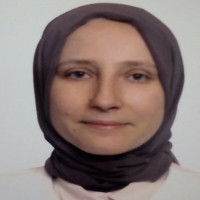
Hatice Uğur graduated from Boğaziçi University, Department of History in 2000. In 2003, she completed her master’s degree in history at Boğaziçi University with a thesis titled “Understanding Afrika-yi Osmani in the Late Ottoman Period: The Case of Zanzibar”, which was published as “A Sultanate in Ottoman Africa: Zanzibar” (Kure Publications, 2005). She completed her doctoral studies at the Institute of African Studies, Department of History, Leipzig University with her thesis titled “East Africa's Entangled Worlds in Ottoman Sources, 1879-1915”. Uğur has published several studies on Ottoman Africa and the interactions between the Ottomans, East Africa and the Western Indian Ocean regions in the 19th century. She is currently a faculty member at Marmara University, Institute of Middle East and Islamic Countries. She will also be a visiting researcher at the Department of African Studies at Humboldt University, during 2024-2025, where she will study the Afro-Ottoman legacy in late Ottoman and early Republican societies and examine Africans in the post-imperial Ottoman Empire within the broader concept of global African diaspora.

Advisory Board
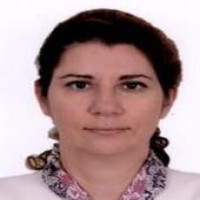

Emekli Büyükelçi
İstanbul Ticaret Üniversitesi Öğretim Üyesi
1964 yılında Samsun ili Vezirköprü ilçesinde doğdu. Babasının imamlık mesleği yapması sebebiyle ailesi 1968’da Merzifon’a yerleşti. İlkokula Aksungur, Bahçecik ve Buğdaylı köylerinde devam edip Taşova’nın Gürsu köyünde 1975 yılında tamamladı. Aynı yıl kayıt olduğu Merzifon İmam-Hatip Ortaokulu 1978 yılında ve sonrasında lise kısmını 1982 yılında bitirdi. Ankara Üniversitesi İlahiyat Fakültesini kazanarak 1987 yılında da buradan mezun olduktan sonra Türkiye Diyanet Vakfı bursu ile Fransa’da Afrika üzerine uzmanlaşmak üzere gönderildi. Paris’te Denis Diderot Üniversitesinde 1991 yılında Yüksek Lisansını, 1996 yılında doktorasını tamamladı. Türkiye Diyanet Vakfı’nın İstanbul ili Üsküdar ilçesindeki İslam Araştırmaları Merkezinde 2006 yılına kadar araştırmacı olarak çalıştı. 2002 yılında Doçent oldu. 2006 yılında İstanbul Üniversitesi İlahiyat Fakültesinde öğretim üyesi görevine başladı. 2008-2011 yılları arasında Afrika konularında Başbakanlık danışmanı olarak görev yaptı. 2009 yılında Profesör unvanı aldı. 2011 yılında İstanbul Medeniyet Üniversitesi Siyasal Bilgiler Fakültesinde başladığı öğretim görevliliği sırasında Afrika ülkelerinden Çad Cumhuriyeti’ne 2012 yılında büyükelçi olarak tayin edildi. 2015 yılında üniversitedeki görevine döndü ve 4 yıl Siyasal Bilgiler Fakültesi Dekanlığı yaptı. 2020 yılında ikinci bu defa Senegal Cumhuriyeti’ne büyükelçi tayin edildi ve 2023 yılında bu görevini yürüttü. Her iki ülkeden devlet nişanı bulunmaktadır. 2024 yılı Haziran ayından itibaren İstanbul Ticaret Üniversitesi İnsan ve Toplum Bilimleri Fakültesi Siyaset Bilimi ve Uluslararası İlişkiler bölümünde öğretim görevlisi olarak çalışmaktadır. Arapça, Fransızca ve İngilizce bilmektedir ve 3 çocuğu bulunmaktadır. Afrika konularında yazılmış kitapları, çeşitli dergilerde makaleleri ve gazetelerde yazıları yayınlanmıştır. Halen Afrika Araştırmacıları Derneği başkanlığını yapmaktadır.
Kitaplarından bazıları:
Geçmişten Günümüze Afrika
Osmanlı Afrika İlişkileri
İki Din Arasında Fransa
İslam Dünyası
Medeniyetlerin Güç Kaynağı Afrika: Binbir Hazine



Prof. Dr. Enver ARPA lisans (1988) derecesini Ankara Üniversitesinden, yüksek lisans (1994) derecesini Ürdün Üniversitesinden almış, doktora derecesini (2001) Ankara Üniversitesinde tamamlamıştır. Akademik hayatından önce farklı kamu kurumlarında yurt içi ve yurt dışı idari görevlerde bulunan Enver ARPA Ankara Sosyal Bilimler Üniversitesine 2017 yılı Ağustos ayında katılmıştır. Yurt dışı görevleri, TİKA Ortadoğu ve Afrika Dairesi Başkanlığı ve Diyanet İşleri Başkanlığı dış ilişkiler müşavirliği gibi görevleri süresince uluslararası tecrübe edindi ve bu tecrübesini yazarak okuyucuya aktardı. “Afrika Satrancında Sudan” “Afrika Seyahatnamesi”, “Hayata Dair – Sanal Dünya Yorumları” gibi kitaplarının yanısıra İslam Dünyası ve Afrika kıtasıyla ilgili çeşitli çalışmalarda bulundu. Özellikle İslam dünyasında yaşanmakta olan şiddet olaylarıyla ilgili araştırma ve çalışmalarını halen sürdürmektedir.
BÜYÜKELÇİ (E) NUMAN HAZAR
Tarsus'ta doğdu. 1966 yılında Ankara Üniversitesi Siyasal Bilgiler Fakültesi'nin Diplomasi ve Dış Münasebetler Bölümü'nden mezun oldu. 1967 yılında Dışişleri Bakanlığı'nda çalışmaya başladıktan sonra yurtdışında çeşitli diplomatik görevlerde bulundu: Ottawa, Kanada'da İkinci Kâtip; Lefkoşa, Kıbrıs'ta Başkâtip; iki dönem (altı yılı aşkın bir süre) Washington D.C., ABD'de Müsteşar ve Birinci Müsteşar; Yeni Delhi, Hindistan'da Misyon Şefi Yardımcısı; Bonn, Federal Almanya'da Elçi-Müsteşar; ve Ankara'da Türkiye Cumhuriyeti Cumhurbaşkanlığı Genel Sekreteri Özel Kalem Müdürü ve ardından Cumhurbaşkanı Özel Kalem Müdür vekili olarak görev almasının yanı sıra, Dışişleri Bakanlığında Kültürel İlişkiler, Siyaset Planlama ve Avrupa Konseyi Dairelerinde çalışmış, Afrika, Doğu Asya ve Pasifik/İslam İşbirliği Teşkilatından sorumlu İkili Siyasi İşler Genel Müdürü olarak görev yapmıştır.
Lagos, Nijerya'da Büyükelçi, Strazburg'daki Avrupa Konseyi'nde Büyükelçi/Daimi Temsilci ve sonrasında da Paris'teki Birleşmiş Milletler Eğitim, Bilim ve Kültür Teşkilatı UNESCO’da Büyükelçi/Daimi Temsilci olarak görev yapmıştır. Millî Savunma Bakanı'na Büyükelçi/Dış Politika Danışmanı görevinde bulunduktan sonra Dışişleri Bakanlığı Teftiş Kurulu Başkanı olarak atanmıştır. 2010 yılında emekli olduktan sonra 2011 yılında Türkiye tarafından merkezi Tahran’da bulunan Ekonomik İşbirliği Teşkilatı'nın (ECO) yeniden yapılandırılmasıyla görevli Akil Adamlar Grubu’nun (Eminent Persons Group) (EPG) Türk Üyesi olarak görevlendirilmiş ve EPG Başkanı seçilmiştir.
Dışişleri Bakanlığı Akademisinde Fransızca ve İngilizce Diplomasi, Müzakere Teknikleri ve Diplomatik Yazışma kursları da vermektedir.
Ankara Üniversitesi Siyasal Bilgiler Fakültesi (SBF) ve TOBB-Ekonomi ve Teknoloji Üniversitesinde (ETÜ) İngilizce Diplomatik Yazışma dersleri vermiştir.
Ankara Dış Politika Enstitüsünde yönetim kurulu üyeliği yapmıştır. Halen İstanbul Maltepe Üniversitesi İnsan Hakları Merkezi Yönetim Kurulu üyesidir.
Farklı uluslararası konularda çeşitli ülkelerde yayınlanan Türkçe, İngilizce, Fransızca ve Almanca dillerindeki yetmiş dolayında makalelerinin ve dört monografinin yanı sıra, Türkçe olarak kaleme aldığı “Küreselleşme Sürecinde Afrika ve Türkiye-Afrika İlişkileri”, “Uluslararası Politika ve Uygarlıklar”, ''Bilim ve Teknoloji Diplomasisi'', ''İnsan Hakları ve Diplomasi'', ‘’Türkiye-Afrika İlişkileri, Türkiye’nin Dost Kıtaya Açılım Stratejisi’’, ‘’Sovyet Tehdidinin Gölgesinde Türk Dış Politikası’’ , ‘’Dış Politika Anıları, Güncemden Notlar, 1967-2018’’, ‘’Uygarlıklar Çatışması, Ermeniler ve Dondurulmuş Uluslararası Sorunlar’’, ‘’Afrika’da Emperyalizm ve Soykırım’’ ve ‘’Ermeni Görüşleri ile Batum ve Gümrü Antlaşmaları’’ başlıklı 10 kitabın da yazarıdır.
Copy Editor

Our journal publishes academic studies covering a broad spectrum of topics related to the Mediterranean Basin and Africa, including history, culture, politics, economics, literature, sociology, and international relations. Academics, researchers, and specialists wishing to publish their original research in these fields are invited to submit their manuscripts.
The manuscript evaluation process is conducted under the principles of scientific research ethics and follows a blind peer review system. Articles submitted for publication must be prepared in accordance with the journal’s author guidelines.